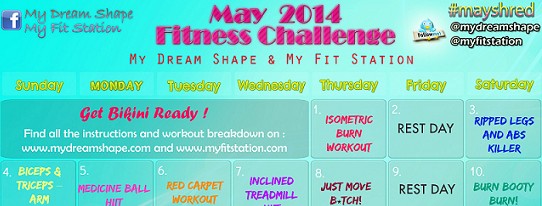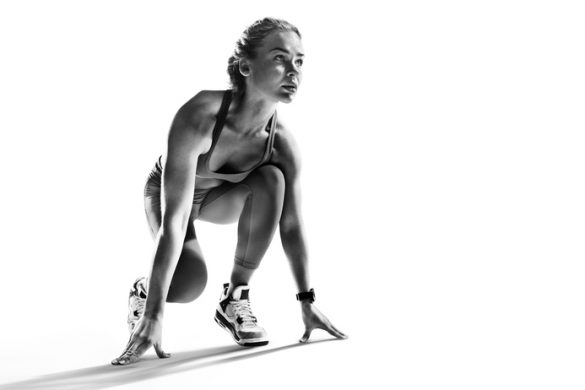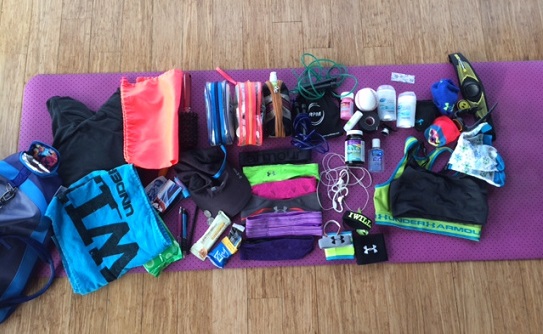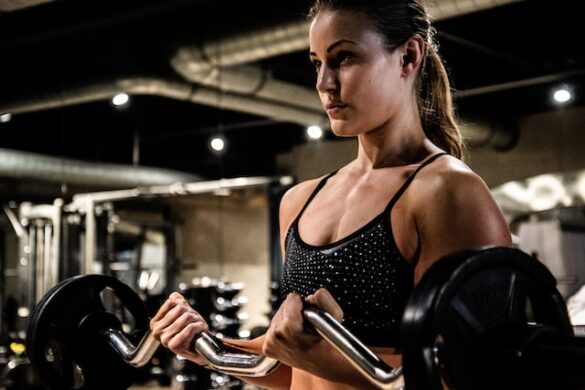Elsewhere, I’ve mentioned that creatine is as important for women as it is for men. Creatine is one of the safest and most effective supplements that can give you a physical and mental edge in your fitness journey.
But make no mistake. Creatine may be for everyone, but that doesn’t mean you can purchase just any type of creatine.
There are different types of creatine and, most importantly, different forms of creatine for men and women.
How is creatine for women different from creatine for men? Join me as I distinguish between the different types of creatine for women and men.
By the end of this article, you’ll know what to look for the next time you’re in the market for effective creatine!
Why Take Creatine Supplements for Women?
Creatine is among the most studied supplements on the market. While we can attribute its popularity to many factors, one reason is that it’s effective and safe!
Creatine confers many benefits, from improved muscular contraction to better mental clarity. Let’s start with the muscle-building benefits of creatine.
- One of creatine’s actions is to fuel muscular contractions anaerobically. In other words, creatine allows your muscles to generate force and power without drawing from oxygen. It enables you to move heavier weights and crank out more reps than you normally can.
- In short, creatine fuels you when you need that quick energy bump.
- But the benefits of creatine don’t stop there. Creatine supplementation also hastens muscle recovery, as shown by this 2021 study.
- Studies are also beginning to suggest the supplement’s nootropic effects too. One 2018 study found that creatine improved short-term memory retention and reasoning in 281 adult subjects.
- In short, creatine is beneficial and safe, whether you’re taking it for fitness or brain health.
The Three Main Differences To Expect Between Creatine Supplements for Women and Men
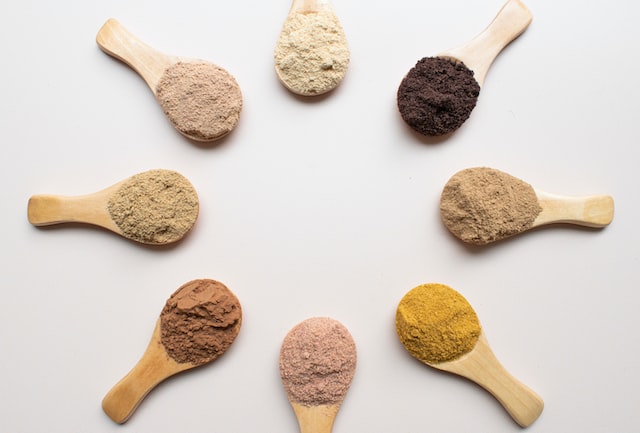
Now that we’re clear on why you should take creatine supplements for women, let’s dive into what makes these supplements different from men’s creatine supplements. Here are some of the differences you can expect.
As a disclaimer, you’ll find a few exceptions on the market if you look for creatine supplements yourself. Below are general facts about the differences between creatine supplements for men and women.
The Type of Creatine in the Supplements
There are six types of creatine, each with unique chemical structures and absorption rates. For the most part, you’ll find that men’s creatine supplements contain creatine monohydrates.
Creatine monohydrate is one of the most popular and affordable creatine types available. It’s also one of the most well-studied and used due to its effects on muscles.
This type of creatine is often dominant in most men’s creatine supplements. It’s a different story for women’s creatine supplements. Many women’s creatine supplements contain more than one type of creatine. One I’ve seen to have almost all types of creatine is BPI Sports’ Creatine for Women.
A 2001 study found that women had a higher creatine storage limit than men.
This capacity for creatine storage can desensitize women to creatine. Hence, for creatine to be effective, it must come in other forms that don’t remain available in the bloodstream instead of the muscles. This is where other types of creatine, like creatine ethyl esters, come in.
Other creatine variants in a supplement can maximize uptake rates, helping women reap the benefits of creatine.
Little to No Stimulants
Another difference you can expect to see is caffeine content. Generally, I’ve found many men’s creatine supplements contain caffeine or other types of stimulants.
Stimulants and creatine monohydrates may be fine for male consumers. However, more stimulants in a creatine supplement may not be a female trainee’s cup of tea. Part of this has to do with how males can metabolize caffeine faster than females. The slower caffeine metabolism of women leads to increased caffeine sensitivity, hence the jitters.
For this reason, most companies that manufacture creatine supplements for women add little to no stimulants to their creatine supplements. In my post on the best creatine supplements for women, many of the supplements I’ve reviewed have one thing in common: they’re stimulant-free.
In short, when you compare men’s and women’s creatine supplements side by side, you’re likely to find less caffeine or stimulants in the latter.
Other Ingredients Beyond Creatine
Creatine delivers the same benefits for men and women. However, how creatine is metabolized and synthesized differs between the two genders. Most importantly, the two genders have different hormonal profiles. For these reasons, other ingredients in women’s creatine supplements are often present.
In women’s creatine supplements, other ingredients enhance creatine uptake. As mentioned earlier, some creatine supplements for women contain creatine ethyl esters.
Besides other forms of creatine, vitamins are also present in many women’s creatine supplements. Among the kinds of vitamin additives, you’ll see B complexes and vitamin D. Together, these vitamins improve force production in the muscles, making them perfect additions to creatine. These vitamins can also help you focus, meaning you don’t need an extra cup of coffee or pre-workout.
Other brands also contain HMB (hydroxymethyl butyrate) to amplify the attenuated effects of creatine in women. HMB is effective in improving muscular strength and growth, according to WebMD.
Some Best Practices When Choosing Creatine Supplements for Women
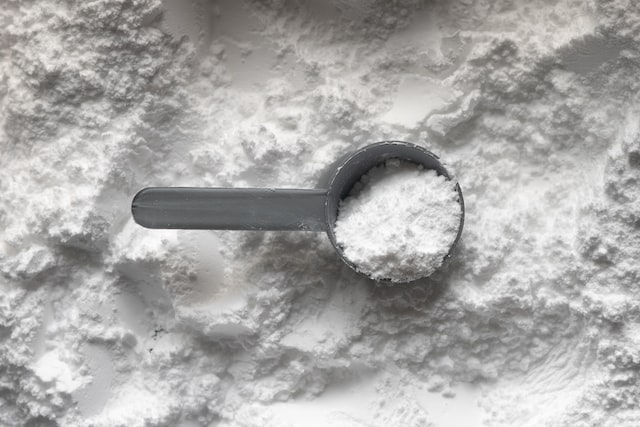
Now that you’re aware of the differences let’s get into how to select the best creatine supplements for you. Based on my experience, I’ve found these practices to be useful whenever I buy creatine or other supplements.
Check for Allergens
Most creatine supplements for women are hypoallergenic. Nevertheless, there will always be some ingredients to which you may be sensitive. For this reason, know your allergies and check the nutritional contents and allergen list.
Choose Your Ideal Dosage Type
By dosage type, I’m referring to the supplement’s form. Some creatine supplements for women are capsules like the ones from the Six Star Elite Series. Others are micronized powder, like the creatine supplements from Bad Athletics.
By choosing the type of creatine you’re comfortable with, you’ll have no trouble sticking to it. And, as we all know, in fitness, adherence is the name of the game.
Choose Based on Your Dietary Restrictions
Most creatine supplements for women consist of synthetic derivatives, making them vegan-friendly. However, some creatine supplements have contents that are from animal sources.
With this in mind, check the supplement’s contents, and choose based on your diet.
Creatine Supplements for Women — They’re Good for You!
There are clear differences that distinguish creatine supplements for women and those that are meant for men. But at the end of the day, the best creatine for you is the one you’re comfortable with.
Selecting a brand of creatine that works for you will fuel your body for more intense workouts and noticeable gains in strength, focus, and recovery.
So go ahead! Take your creatine, and crush your fitness goals!
FAQs:
Should a female take creatine?
A female should take creatine because it has proven to be safe and effective in creating muscle mass and strength in women. It aids muscle recovery and also boosts brain power.
What will creatine do for a woman?
Creatine increases the body’s stores of phosphocreatine, a compound that helps produce energy during high-intensity exercise.
In women, creatine supplementation has been shown to improve muscle strength and power, and performance in activities that require short bursts of energy, such as sprinting and jumping. It may also help with muscle recovery after exercise.
How much creatine should females take?
The appropriate dosage of creatine for women will depend on several factors, including age, weight, and training status. Generally, the recommended dosage for adults is 0.3 grams per kilogram of body weight per day, with a loading phase of 0.3 grams per kilogram of body weight for the first 5-7 days, followed by a maintenance phase of 3-5 grams per day.
Is creatine good for women’s weight loss?
Creatine may be beneficial for women who are trying to lose weight, as it has been shown to increase muscle mass and strength, which can help increase metabolism. However, it is important to note that creatine alone is not a weight-loss supplement and will not directly cause weight loss.
Sources
https://www.amazon.com/dp/B083G6PT35
https://jissn.biomedcentral.com/articles/10.1186/s12970-021-00412-w
https://www.ncbi.nlm.nih.gov/pmc/articles/PMC7998865/
https://myfitstation.com/best-creatine-for-women/
https://www.healthline.com/nutrition/creatine-for-women#how-to-choose
https://pubmed.ncbi.nlm.nih.gov/35268011/
https://pubmed.ncbi.nlm.nih.gov/33800439/
https://www.ncbi.nlm.nih.gov/pmc/articles/PMC8228369/
https://my.clevelandclinic.org/health/articles/17674-creatine-and-creatine-supplements#:~:text=About%2095%25%20of%20creatine%20is,heart%2C%20brain%20and%20other%20tissues.
https://www.medicalnewstoday.com/articles/creatine-for-women#comparison
https://myfitstation.com/best-creatine-for-women-2/
